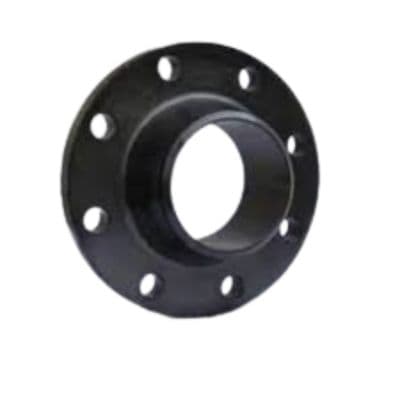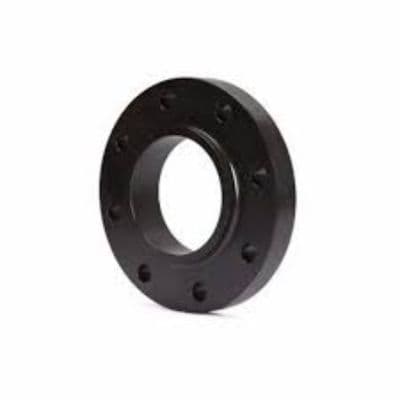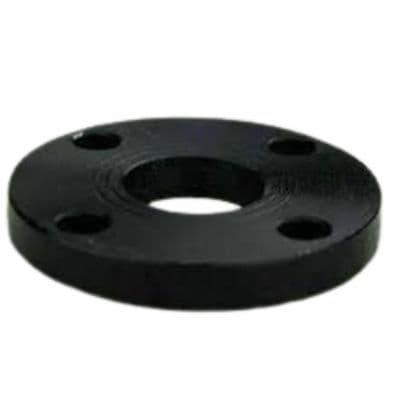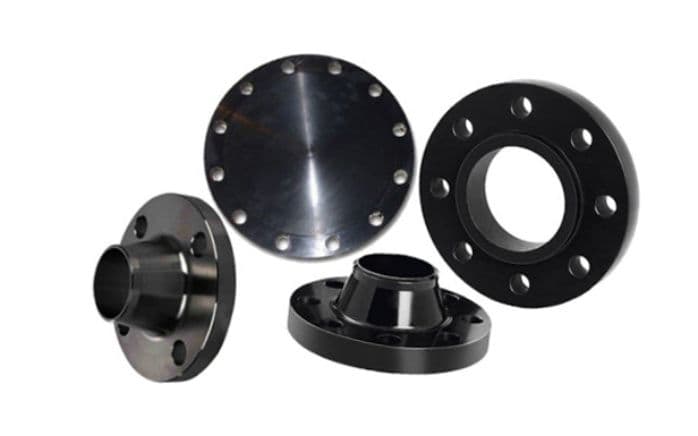| Flanges Types | Slip On, Lap Joint, Weld Neck, Long Weld Neck, Threaded, Blind, Companion |
|---|---|
| Class | 150 Lbs, Pn 6, 300 Lbs, 10, 16, 600 Lbs, 25, 40, 900 Lbs, 64, 100, 1500 Lbs, 160, 2500 Lbs Asa 150, Asa 300 |
| Size | 1/2″ (15 Nb), 48″ (1200nb) Dn10~dn5000 |
| Type | Raised Face (rf), Large Male Female (lmf), Small Tongue, Flat Face (ff), Groove, Small Male Female (smf), Ring Type Joint (rtj), Large Tongue & Groove, Lap Joint Face (ljf) |
Low Temperature Carbon Steel LF5 Flanges Manufacturer in India
Type of Sub-products

Low Temperature Carbon Steel Lf5 Flanges Weld Neck Flange Low Temperature Carbon Steel Lf5 Flanges Weld Neck Flange
Carbon Steel LF5 Weld Neck Flanges are designed for high pressure and low temperature applications where strong, reliable connections are essential. Manufactured according to ASTM A350 LF5 standards, these flanges feature a long, tapered neck that ensures smooth, stress free welds to the pipe, providing a strong, leak proof connection. The tapered design also helps distribute stress more evenly, reducing the risk of fatigue and failure in extreme conditions.

Low Temperature Carbon Steel Lf5 Flanges Slip On Flange Low Temperature Carbon Steel Lf5 Flanges Slip On Flange
Low Temperature Carbon Steel LF5 Slip On Flanges are designed for low temperature applications where ease of installation and reliable performance are essential. Manufactured to ASTM A350 LF5 standards, these flanges slide over the pipe and are welded both inside and outside, ensuring a secure, leak proof connection. Ideal for cryogenic and low pressure systems, LF5 slip on flanges offer excellent toughness and resistance to brittle fracture, maintaining their integrity even in extremely cold environments.

Low Temperature Carbon Steel Lf5 Flanges Blind Flange Low Temperature Carbon Steel Lf5 Flanges Blind Flange
Low temperature carbon Steel LF5 Blind Flanges are solid flanges used to seal the ends of pipes, valves, or pressure vessels in low temperature systems. Manufactured to ASTM A350 LF5 standards, these flanges offer excellent toughness and resistance to brittle fracture, even in cryogenic conditions. Blind flanges are ideal for isolating sections of piping, pressure testing, or providing a secure closure in cryogenic and low temperature applications, ensuring long lasting safety and system integrity.
